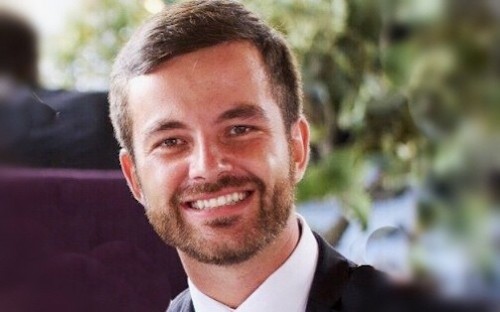With crisis came regulation. New rules required all bank assets to be tracked, monitored, and reported in real-time. Seeing the disruption these regulatory requirements caused for the banks, Nicolas and Steven decided to create a software solution to help banks meet them.
In 2012, Nicolas quit his job and decided to take his nascent business idea through a full-time MBA at Chicago Booth—ranked the best MBA program in the world by The Economist.
At Booth, the bankers’ business idea became reality. Today, BaseCap Analytics is helping banks unlock the full value of their capital, solving banks’ problems with cutting-edge big data analytics and reporting tools, and making their data processes more efficient.
Nicolas recently helped secure a contract with a systematically important financial institution—an institution so important that its failure could cause financial crisis. He and Steven are growing the team and looking to expand across the US.
Originally from Ecuador, Nicolas previously worked in private wealth management at UBS Financial Services and then as a serial CFO, both for a sanitation and a solar energy company in East Africa just after his MBA. He says the best place to start a business is at business school.
Where are you at right now with your business?
BaseCap is at a key strategic stage. We were recently awarded a contract with a SIFI, which allowed for the expansion of our team from three to 10 employees.
We have a promising pipeline of clients, and we are building functionality on our platform. This will allow us to attract funding to expand our product offering to banks outside of the North-East region.
What advice do you have for MBAs looking to start their own business?
As much as there are some risks related to investing in an MBA while starting a business, there are innumerable benefits associated with doing so. My experience taught me the importance of pairing the resources offered by business school with my business idea. Booth has really strong connections in banking, and a large network of funders and advisors that have been key to get us where we are.
Whatever industry you are passionate about, surround yourself with people that are passionate about making your business idea a reality. Scaling a business is all about the people that make up your organization. The skills and network you garner in business school are the most powerful tools you can use to face the unknowns that are inherent to entrepreneurship.
Why did you decide to pursue an MBA at Chicago Booth?
I knew I wanted to pursue an entrepreneurial career after school, and was convinced that the best path for me was Chicago Booth. With Booth’s flexible curriculum, I’d be able to take classes that would help me to develop the skills I’d need the most in each semester.
Ultimately, my decision was easy. The recruiters and people from Booth were the most supportive and encouraging I met during the recruiting process.
How have you profited from your MBA experience?
Chicago Booth has been crucial to the success of BaseCap Analytics to date. While at Booth, I benefited from strategic insights from classes like Building the New Venture with professor Waverly Deutsch, and New Venture Strategy with professor James Schrager.
My co-founder and I have also been fortunate to have professors like Steven Kaplan introducing us to potential funders and advisors that are now part of our board of directors. Additionally, the Polsky Center for Entrepreneurship and Innovation has connected us with lawyers and other entrepreneurs that have offered us a fresh perspective when we've needed it the most.
Student Reviews
The University of Chicago Booth School of Business
RECAPTHA :
d4
2f
b0
d8








